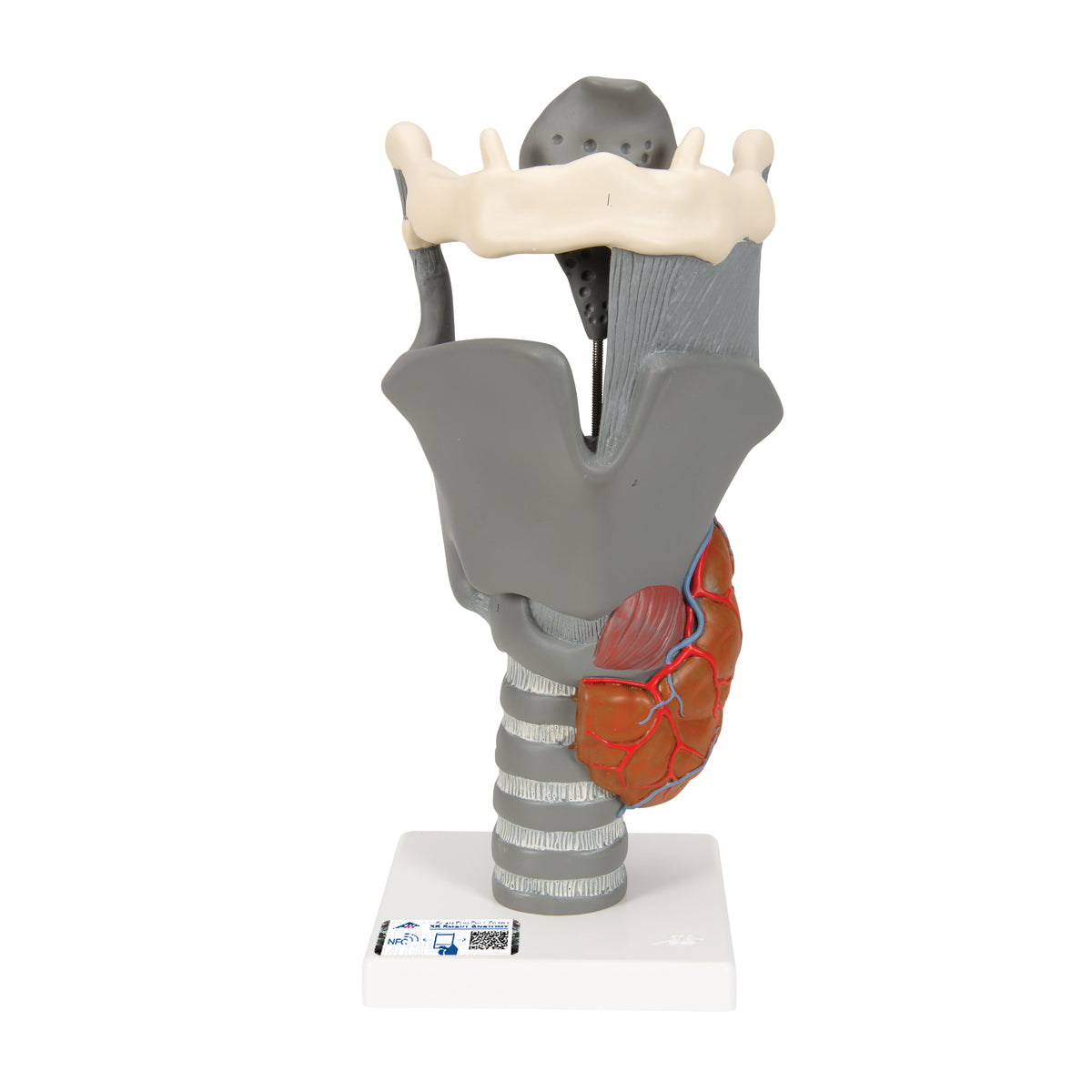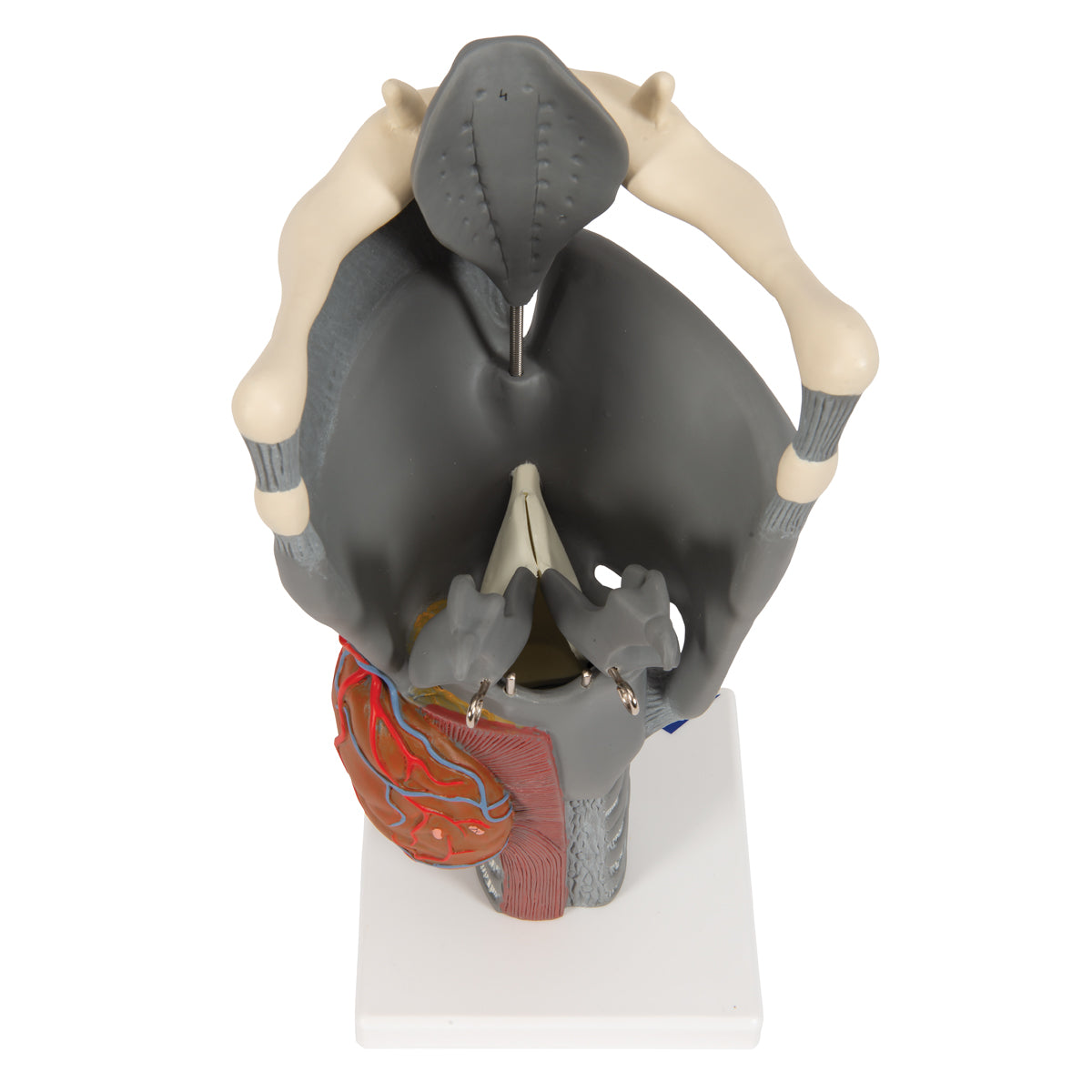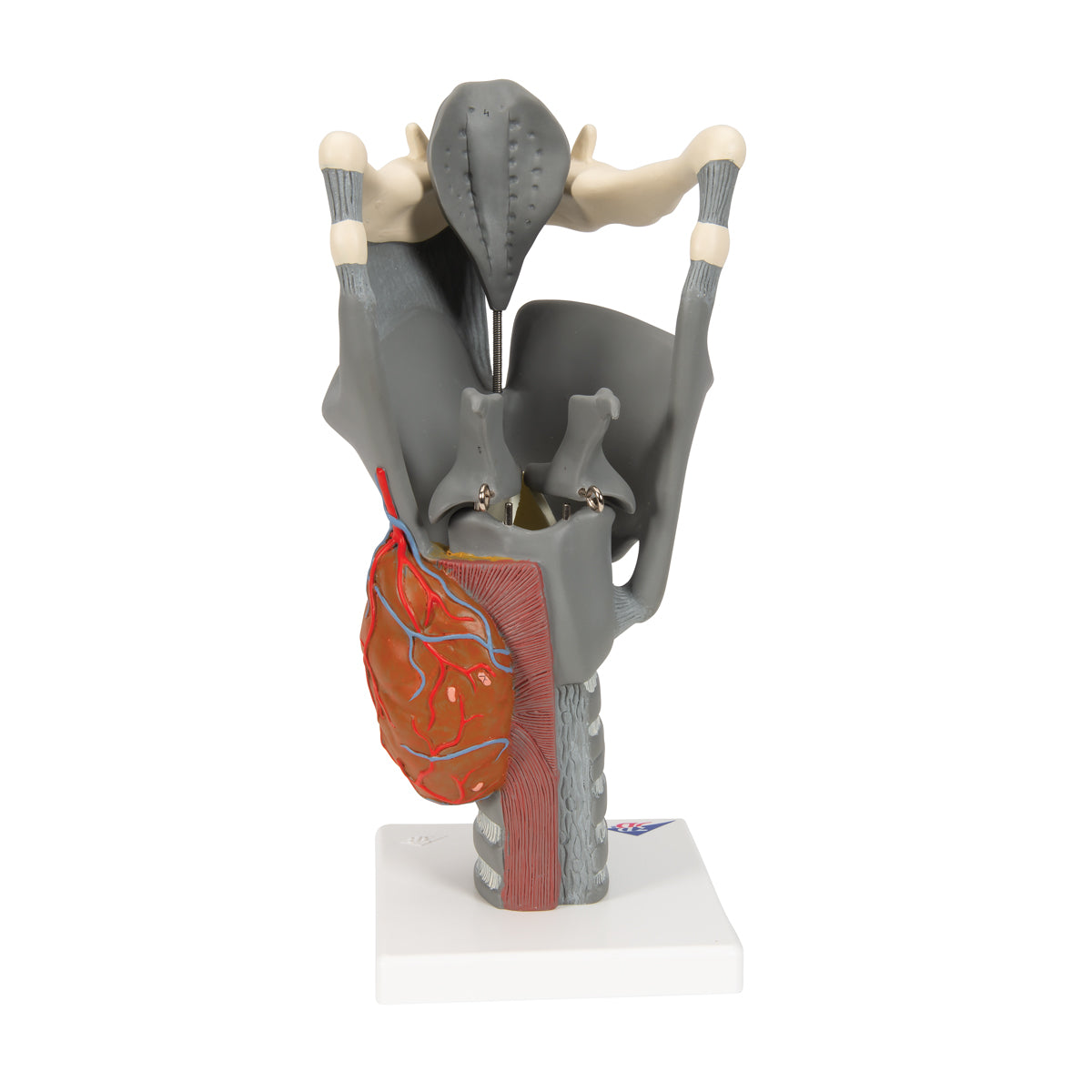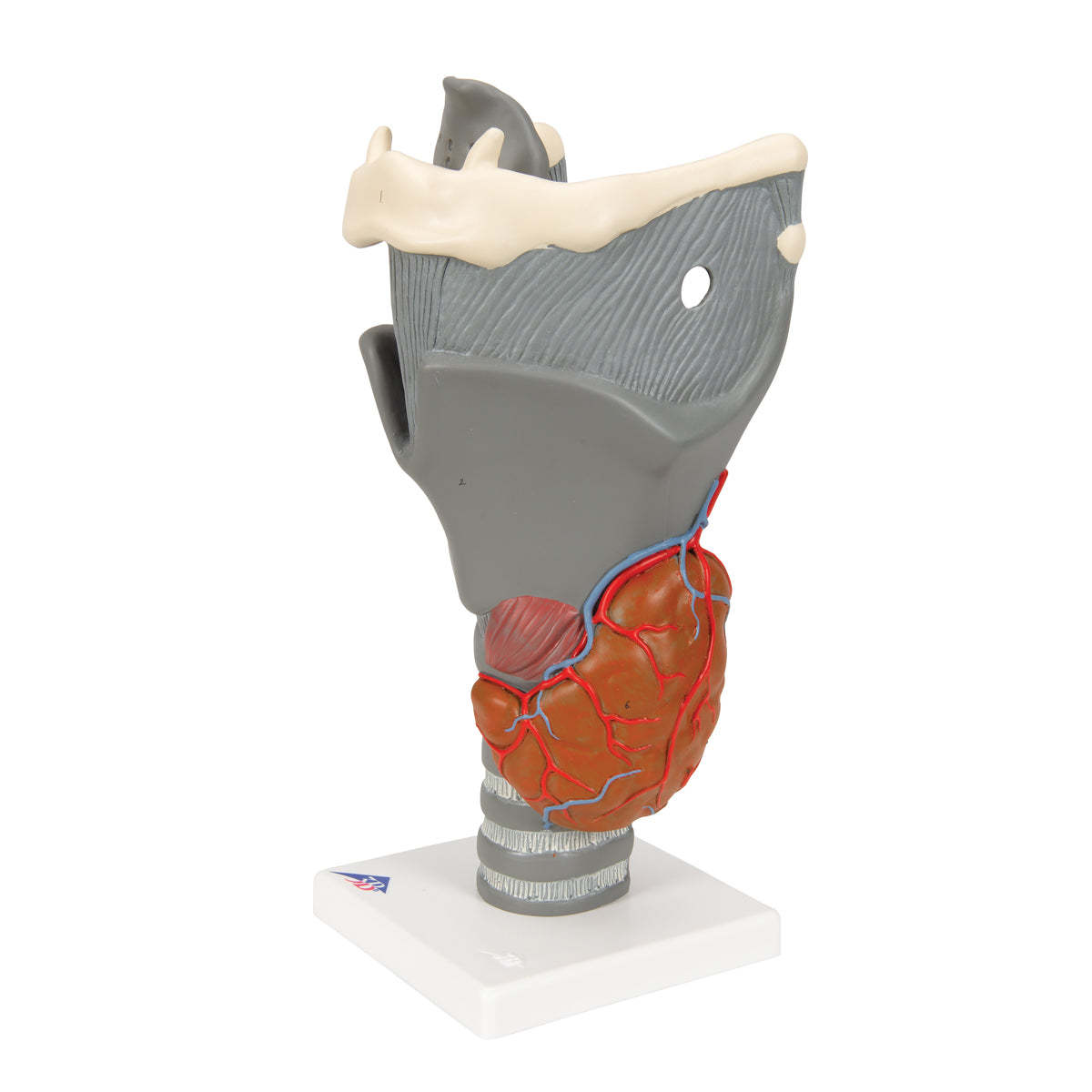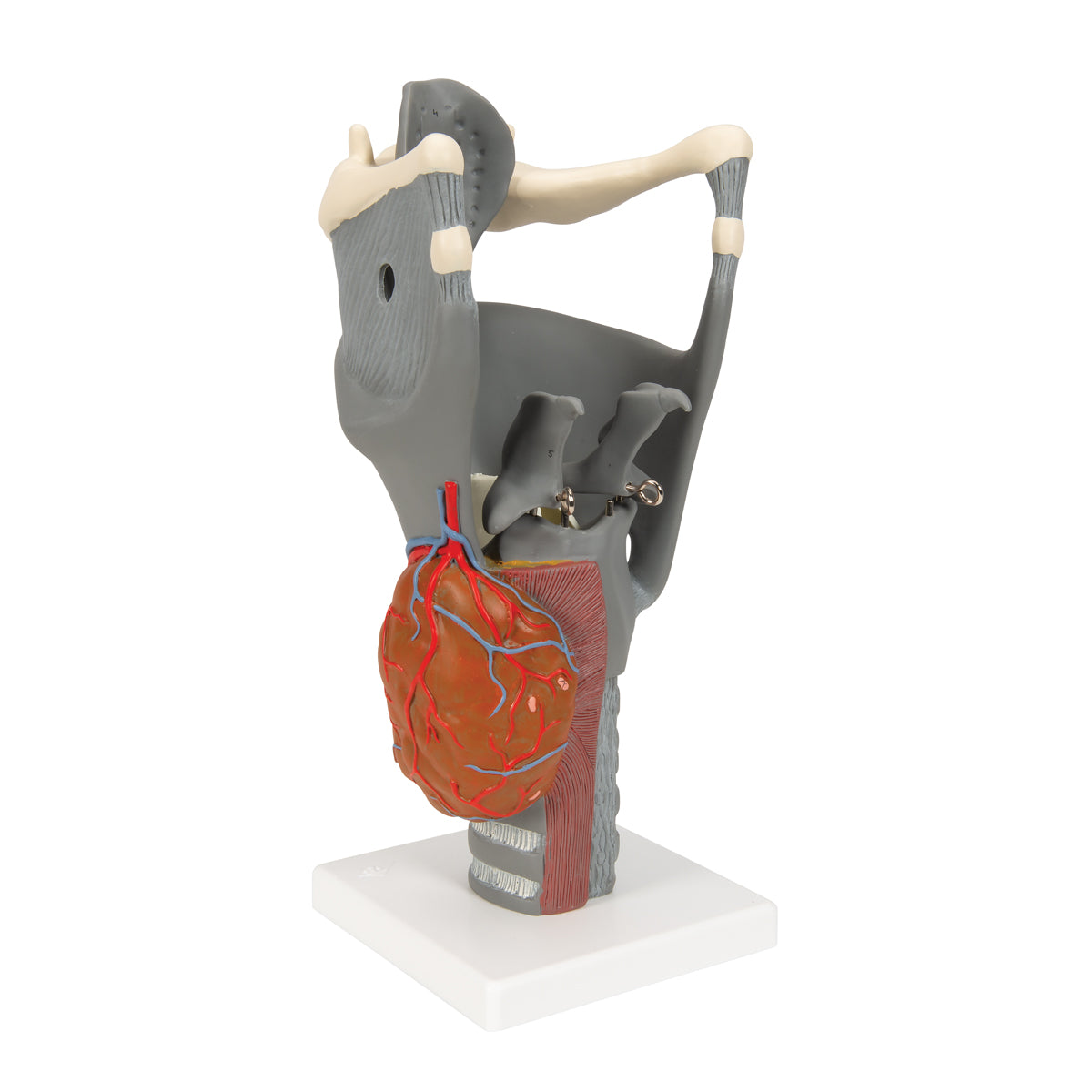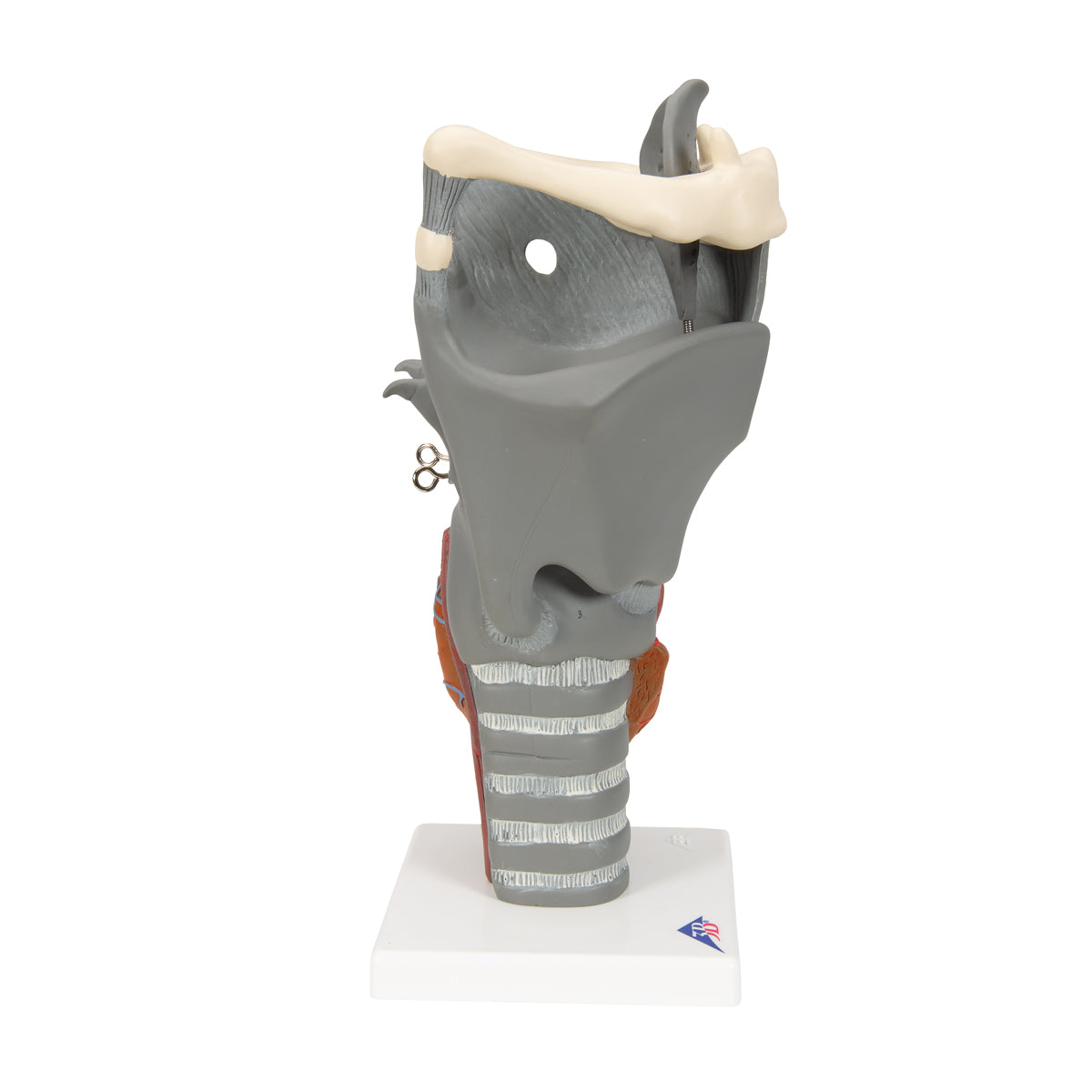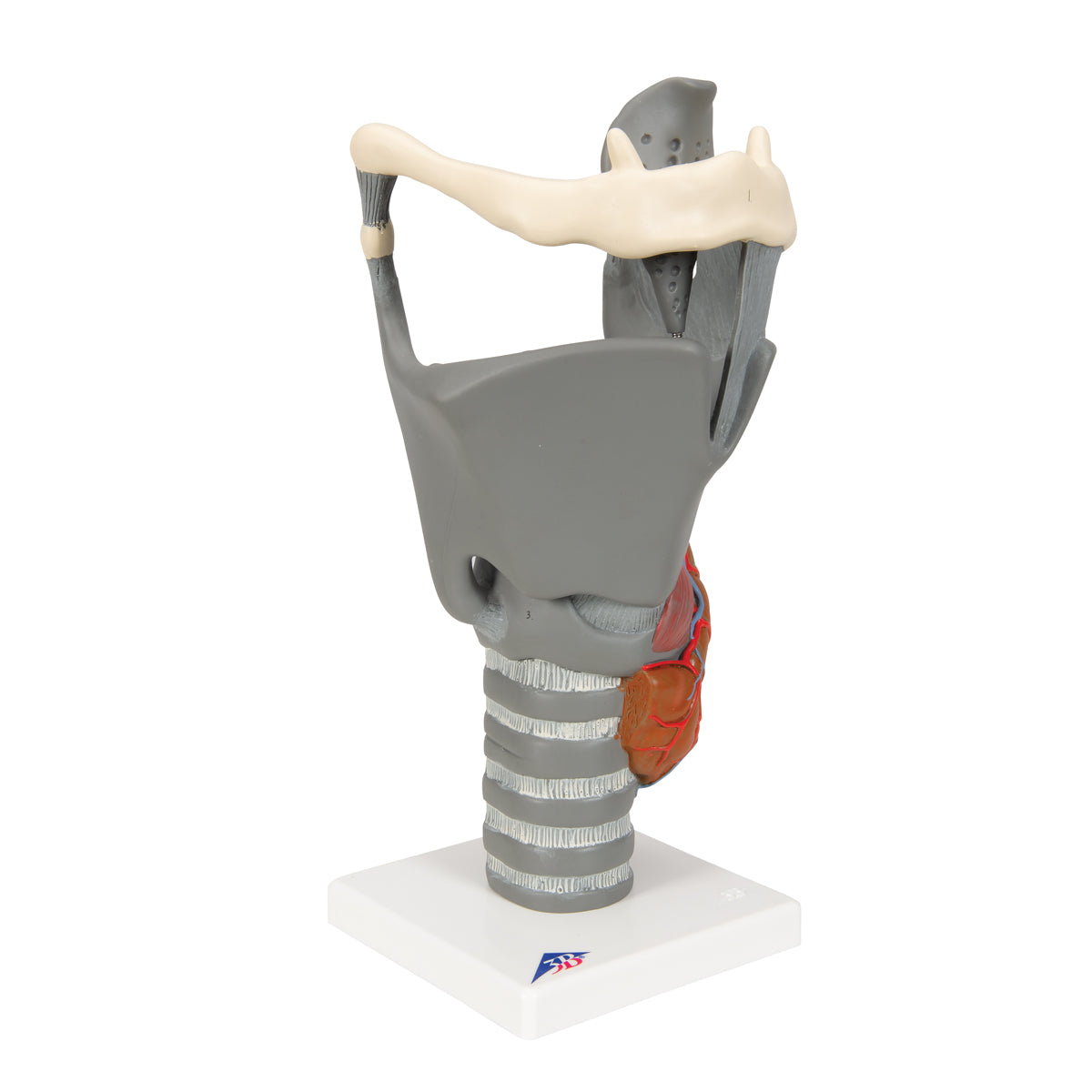SKU:EA1-1013870
Model of the larynx with movable nasal cartilages and epiglottis
Model of the larynx with movable nasal cartilages and epiglottis
Out of stock
this product is made to order. To place an order please call or write us.Couldn't load pickup availability
Are you looking for a model of the larynx that, in addition to illustrating the location of the individual cartilages, can also be used to demonstrate how the movements of the cartilages have an effect on the function of the vocal folds? Then we recommend this one.
The model is produced in 2.5 times magnification, has the dimensions 14 x 14 x 28 cm (length x width x height) and weighs 0.7 kg. The model is delivered on a white stand.
The individual parts cannot be separated from each other, but the epiglottis, the cartilages of the snout and the vocal folds are movable.
Anatomical features
Anatomical features
Anatomically, the model shows the different cartilages that make up the throat, as well as some of the ligaments that connect the individual cartilages to each other.
The following cartilage appears:
Larynx (epiglottis)
The thyroid gland (cartilago thyroidea)
The cricoid cartilage (cartilago cricoidea)
The arytenoid cartilages (cartilago arytenoidea)
Cartilagines corniculatae (sits on top of the snout cartilages)
Furthermore, it can be seen how the lower cartilage (annular cartilage) is connected to the windpipe (trachea), which consists of horseshoe-shaped cartilage rings, while the upper cartilage (thyroid cartilage) is connected to the bone of the tongue (os hyoideum).
In addition, the thyroid gland (glandula thyroidea) and the parathyroid glands are seen, as well as the vessels that supply the glandular tissue.
Product flexibility
Product flexibility
In terms of movement, the model can be used to understand how the movement of the cartilages in relation to each other changes how tense or relaxed the vocal cords are, and thus how the tone of the sound produced becomes.
The vocal folds are the structures that extend from the front projections of the rostral cartilages to the back of the thyroid cartilage.
The nipple cartilages can be moved by pulling on the ring-shaped screws that sit in them. When you do this, it is demonstrated how the vocal folds are pulled to opposite sides because the vocal fold cartilages are rotated so that the vocal fold (the space between the two vocal folds) between them becomes larger.
In addition, the epiglottis is movable and can be folded down over the opening to the throat via a small spring. This happens, for example, during the sinking.
Clinical features
Clinical features
Clinically, the model can be used to understand various diseases and the like in the larynx, such as epiglottitis and vocal cord polyps.
Furthermore, the throat model can be used to understand examination methods such as laryngoscopy and treatments such as throat surgery.
Share a link to this product
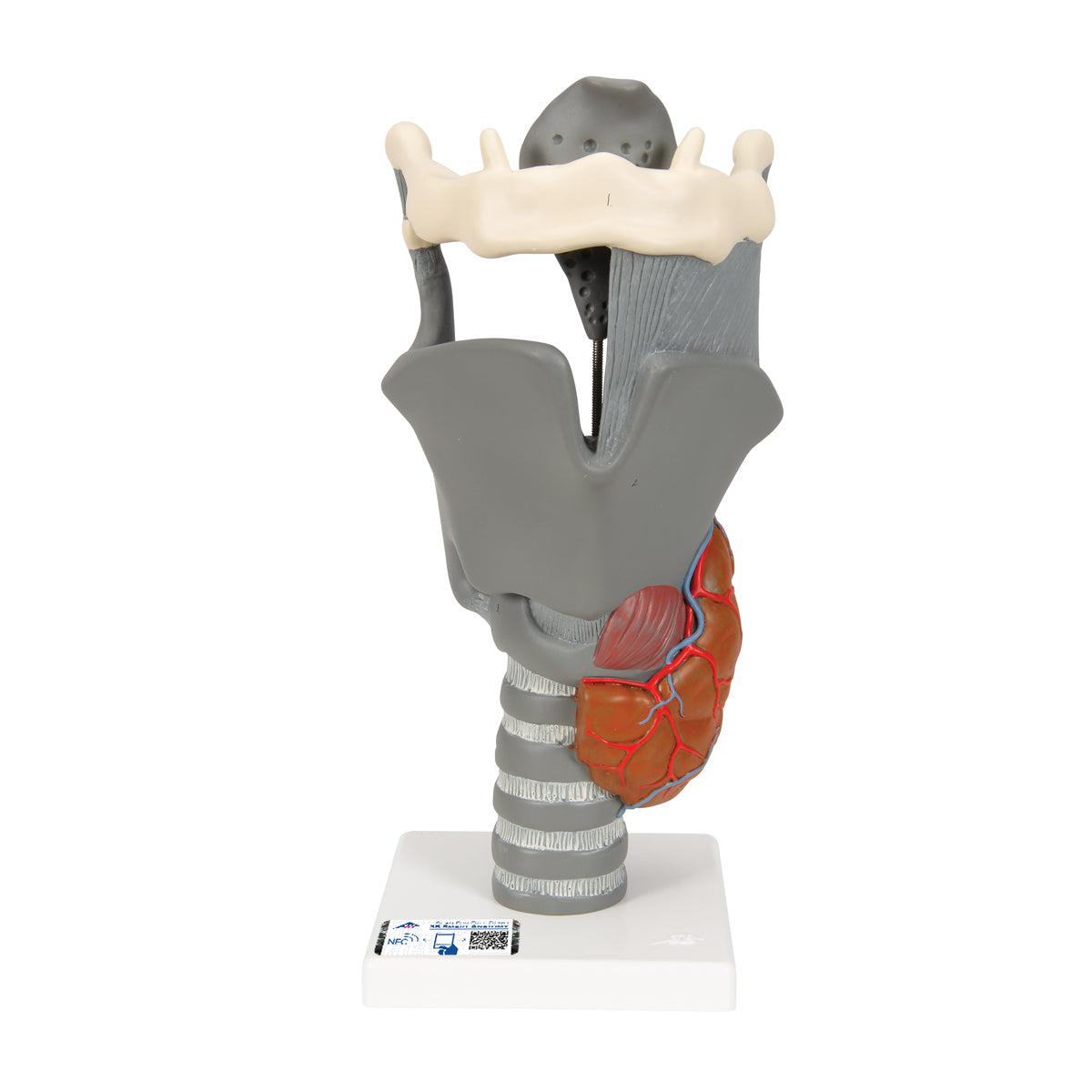
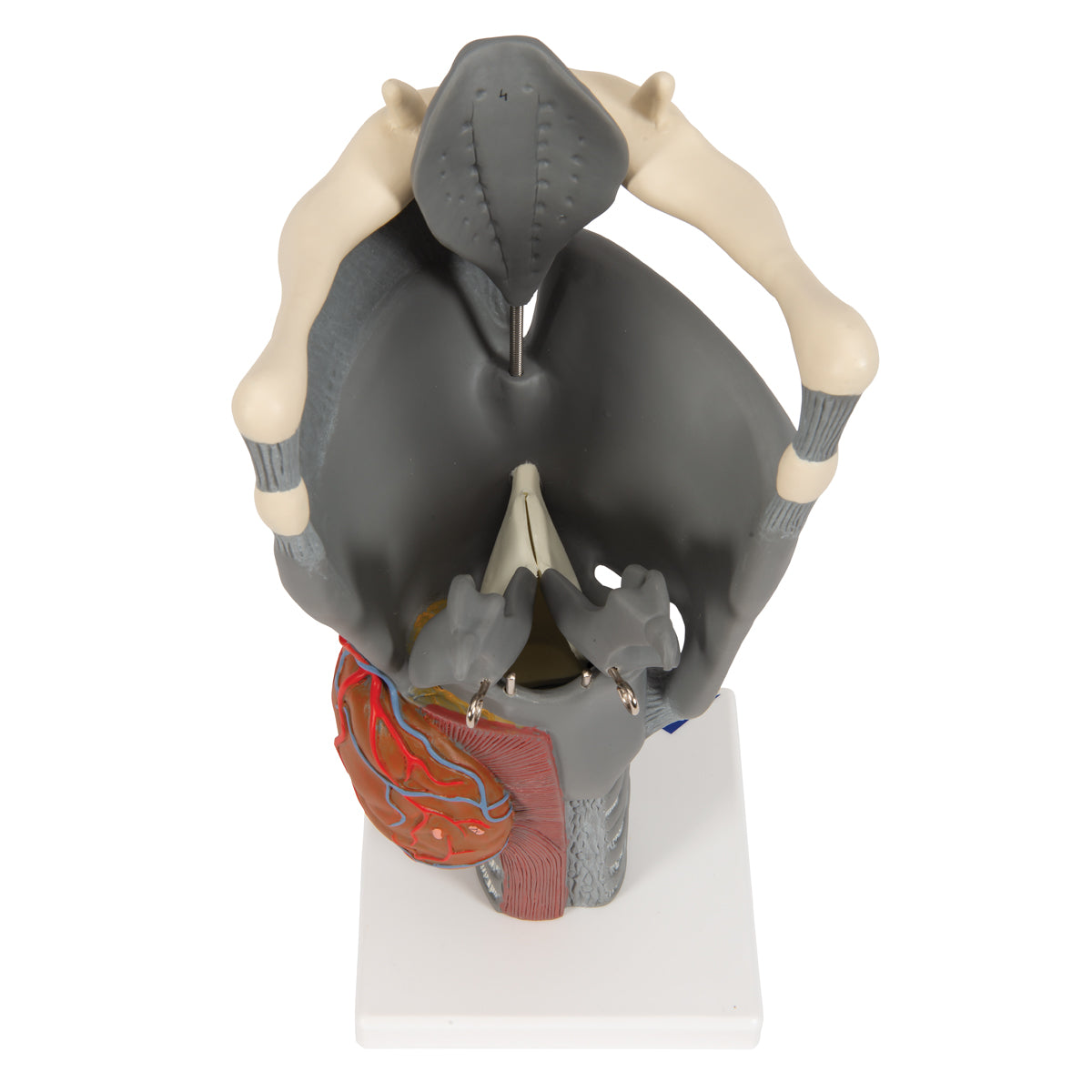
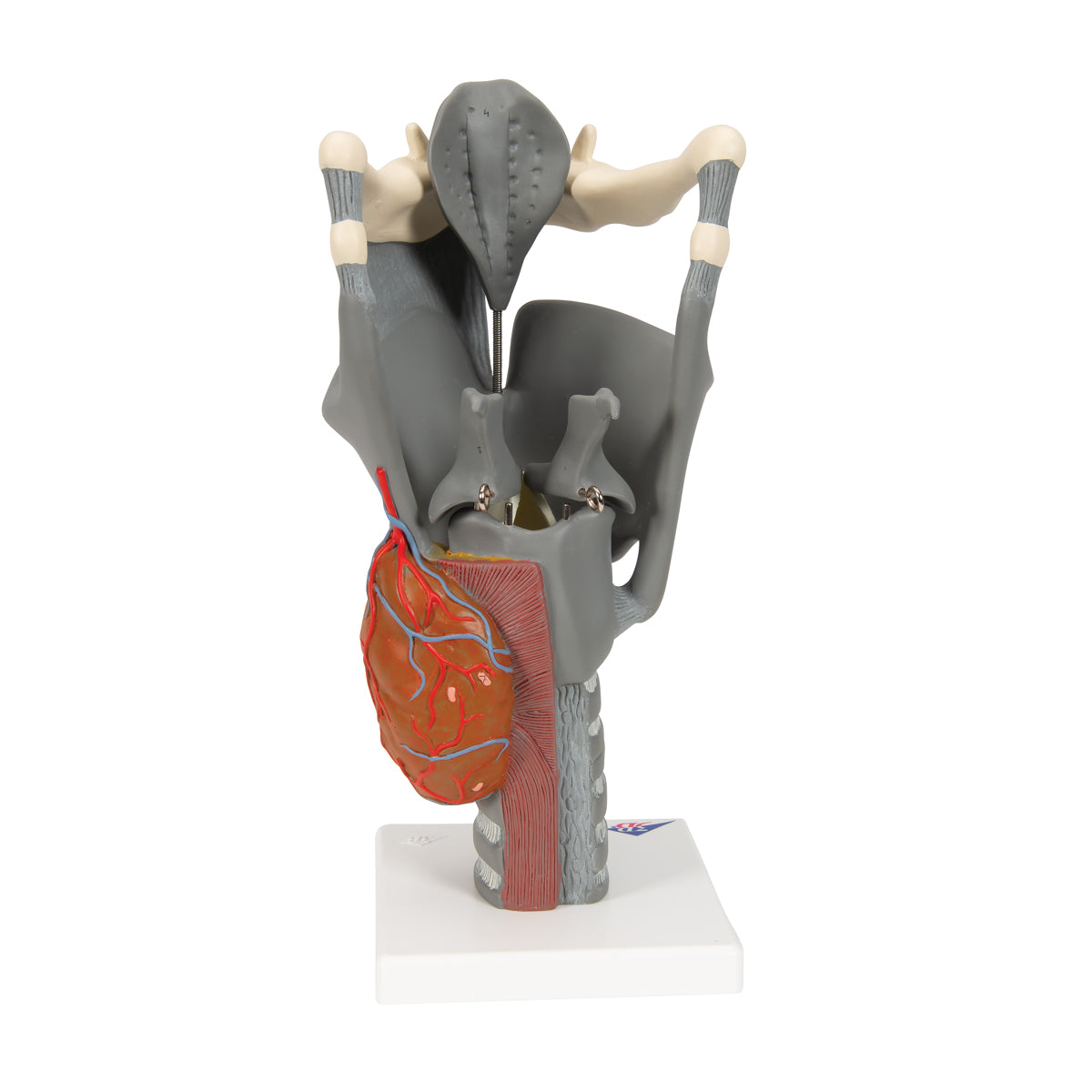
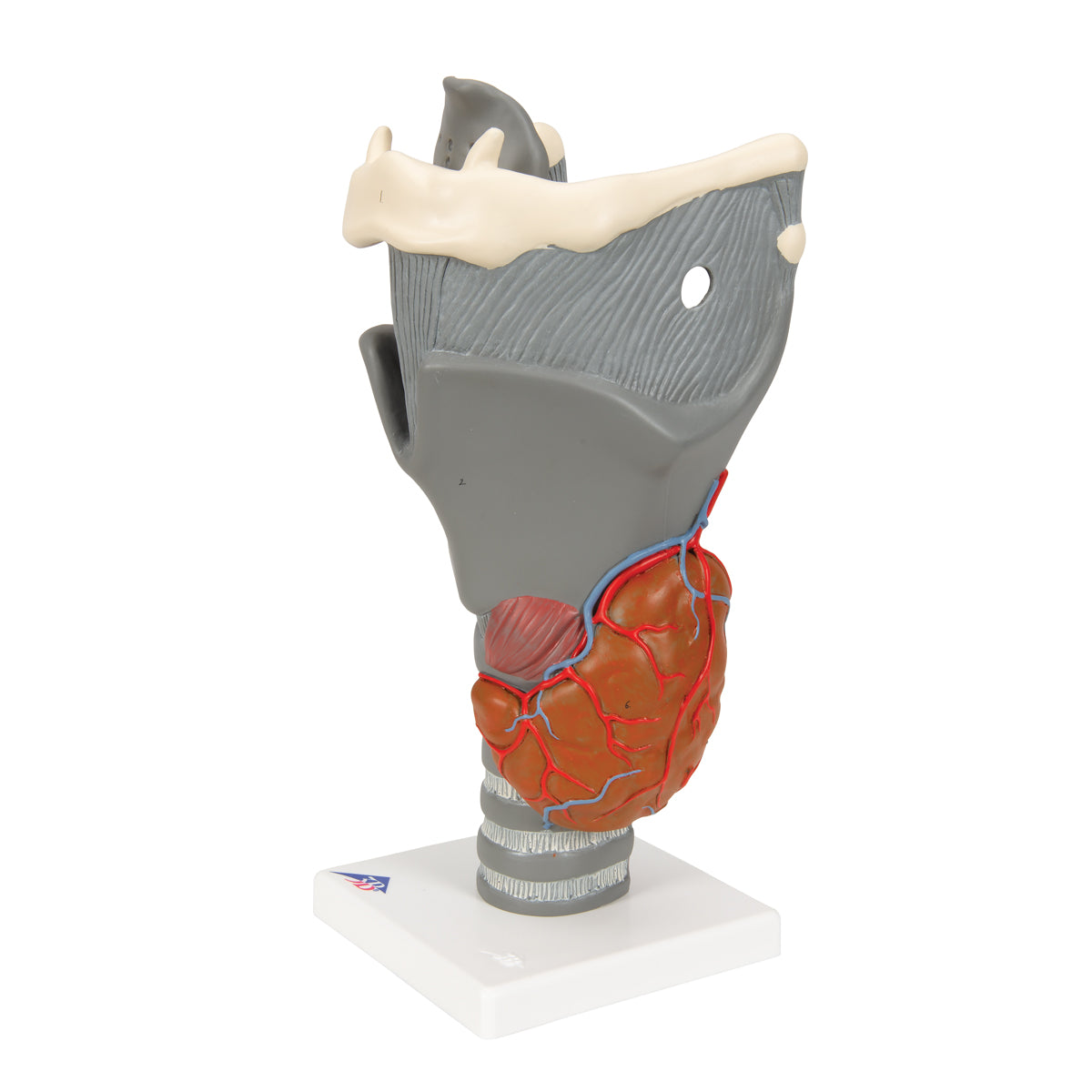
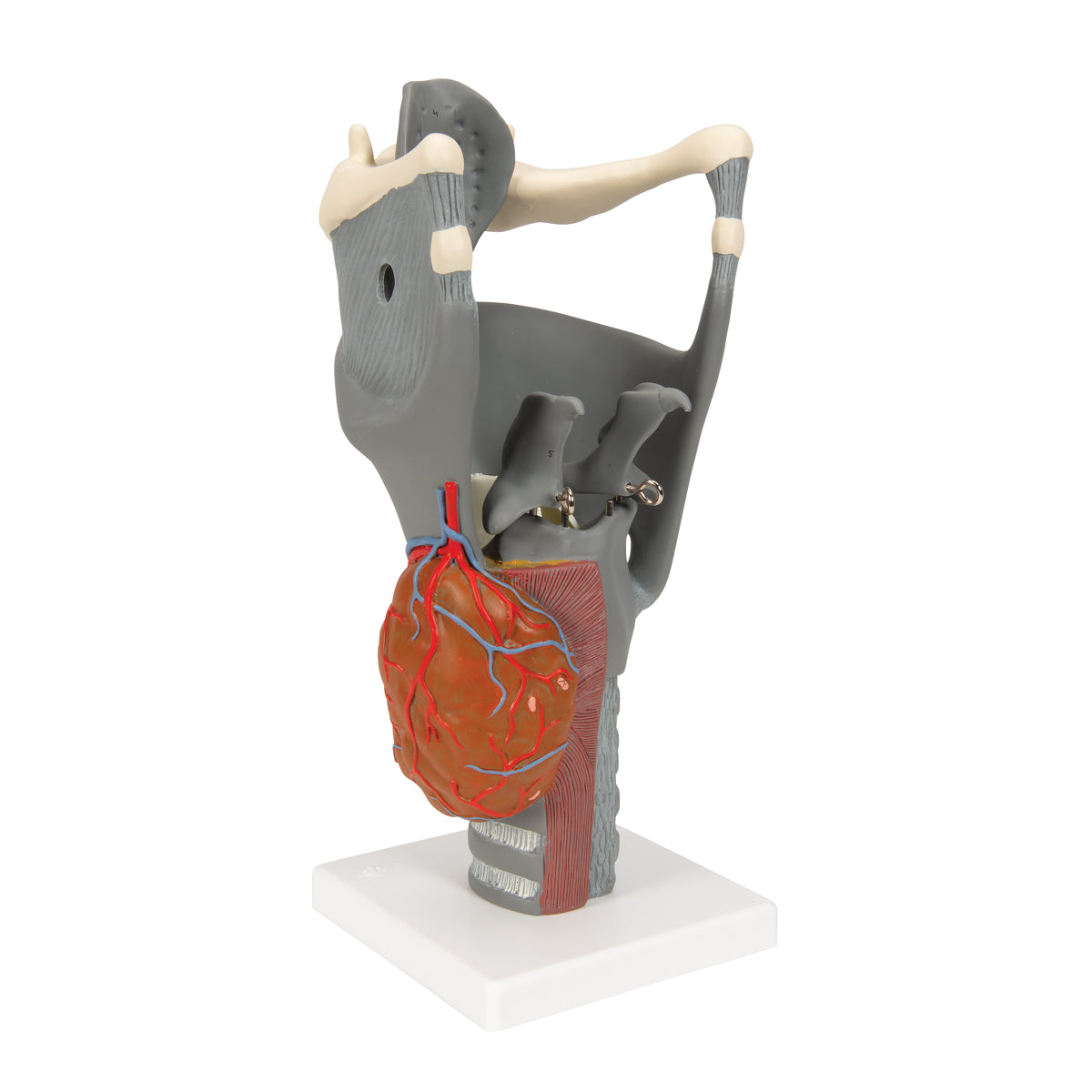
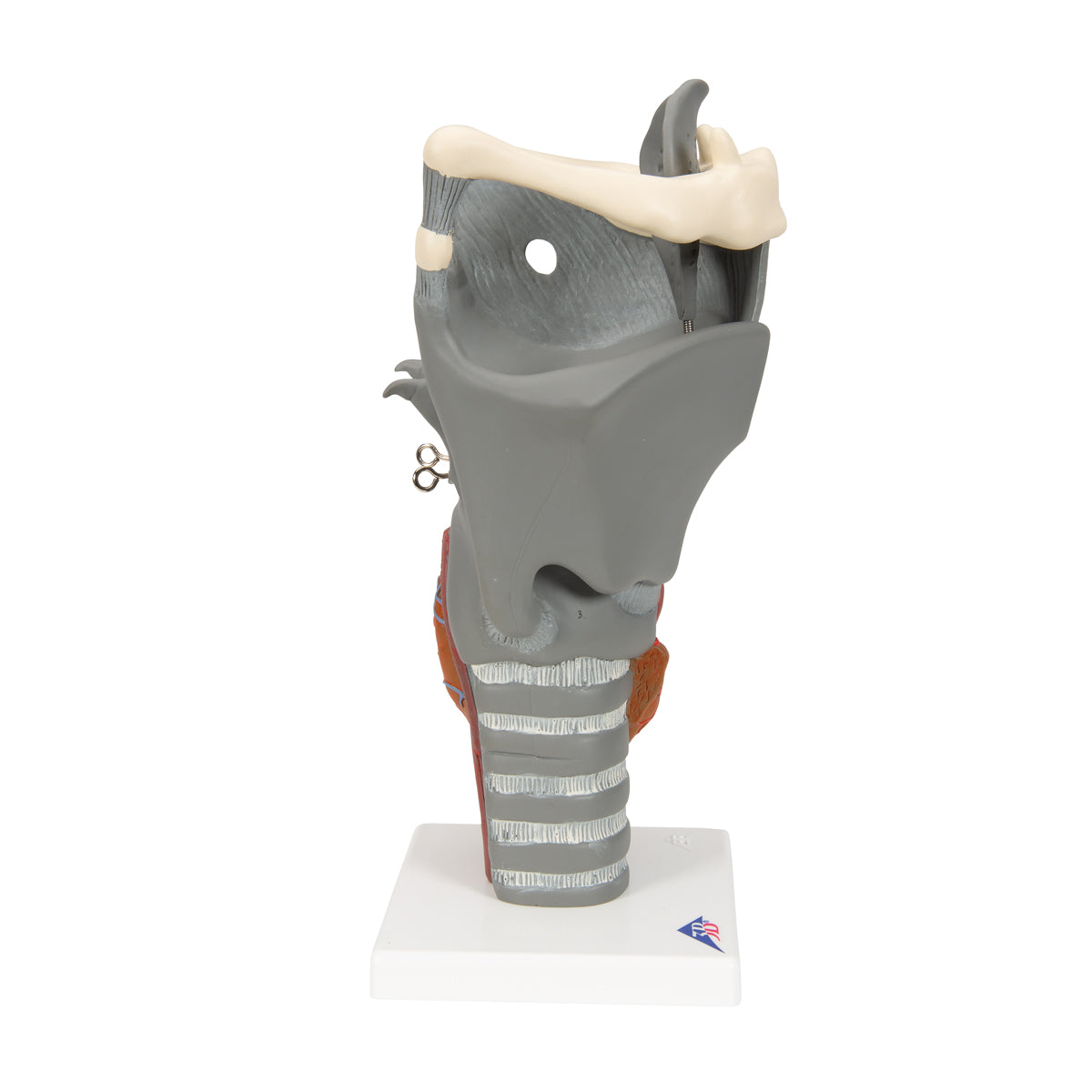
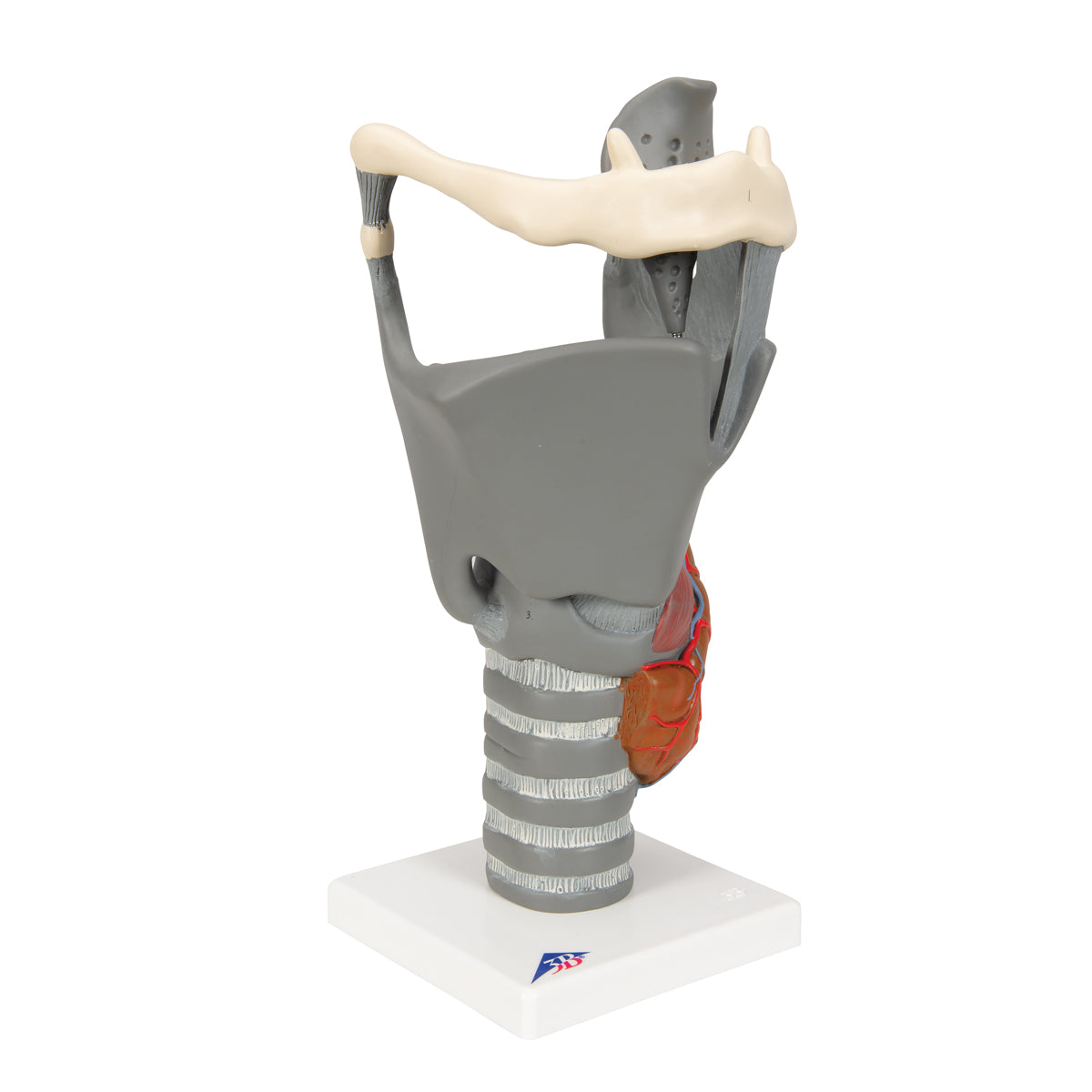

A safe deal
For 19 years I have been at the head of eAnatomi and sold anatomical models and posters to 'almost' everyone who has anything to do with anatomy in Denmark and abroad. When you shop at eAnatomi, you shop with me and I personally guarantee a safe deal.
Christian Birksø
Owner and founder of eAnatomi ApS

